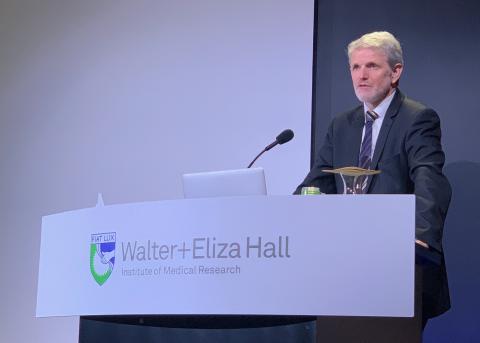
Professor Anthony Brookes is a Genomics and Bioinformatics academic at the University of Leicester (UK). His work is focused on bioinformatics of rare and common disease, as well as biobanking and genomics technology challenges.
In April 2019, Professor Brookes travelled to Australia as an Immersion Visitor with Melbourne Genomics to share his expertise on data challenges and to learn more about the program.
We had the opportunity to sit down and ask him about his work and his experience in Melbourne.
Tell us what you’re currently working on.
The principle challenge I work on is how one makes diverse academic and clinical data useful for researchers. The problem in both research and healthcare is that data at the source is poorly organised, not compliant with any data standards, and often not even digitised. As such, it is hard to deploy it effectively into research settings.
And there are many other downstream challenges as well – such as making data safely discoverable, getting IT systems to work in federated arrangements, governance processes around making data shareable, and facilitating remote analysis for large datasets that are difficult to move around.
What interested you about visiting Melbourne Genomics?
The problems and the backdrop are somewhat different in every country, and the situation in Melbourne and Victoria is particularly interesting. One striking challenge is the lack of any widely used patient ID. But against this, great progress is being made in formulating common consent approaches for the use of healthcare data in research.
Someone like me coming in with a big stick isn’t going to make things work. Instead, what Melbourne Genomics is doing well is building from the ground up in a way that allows every member organisation to have a sense of ownership over the solution. Basically, letting solutions naturally grow into being, by continually fertilising and watering the system.
What benefits do you see flowing from your visit?
We can all learn a lot from Melbourne Genomics. You’ve got different types of organisations, sufficient funding, and a lot of good people – smart people – all agreeing to try and solve this together. It gives you a Goldilocks-sized community – not too big, not too small – with a range of approaches.
You’ve got a wonderful opportunity here, a wonderful backdrop to do this work in.
